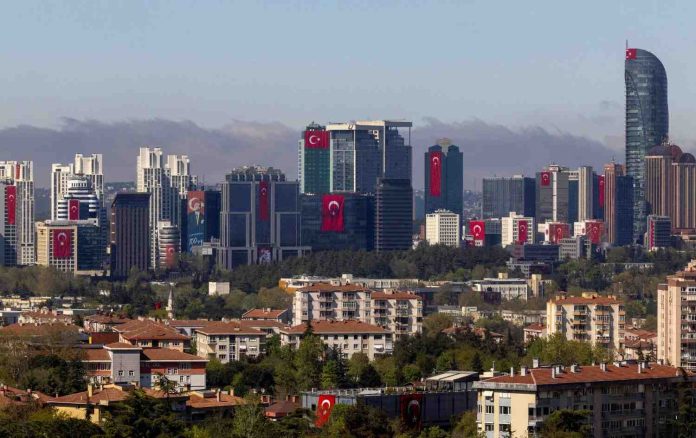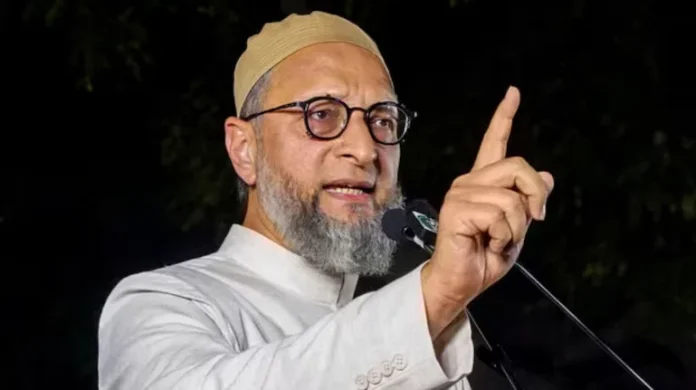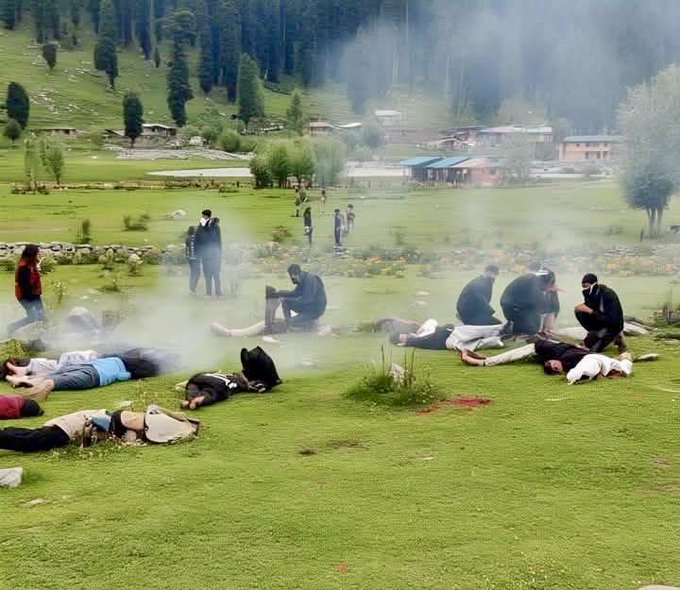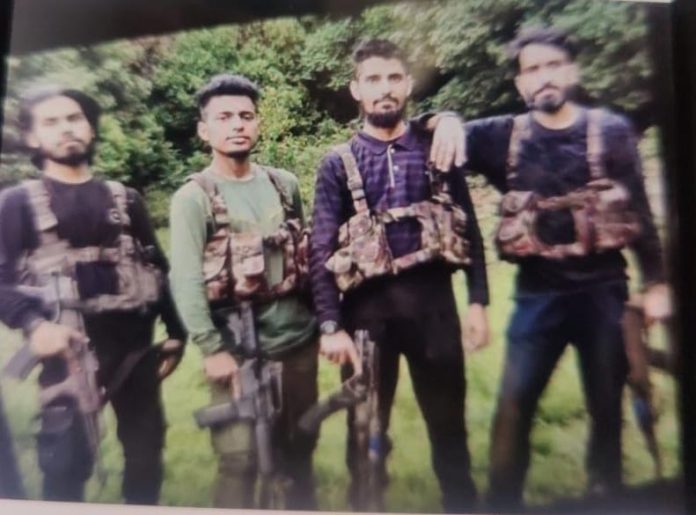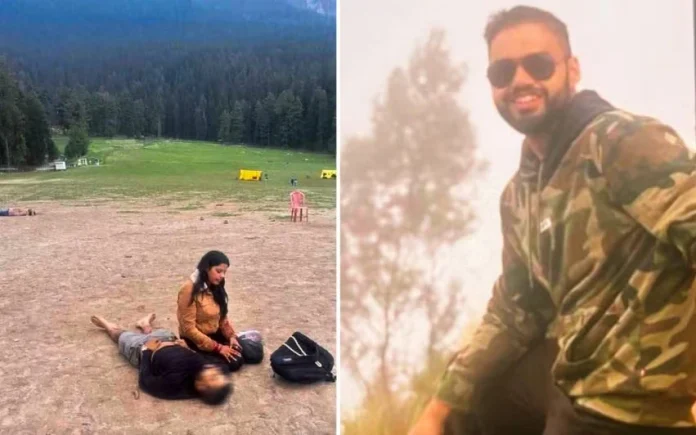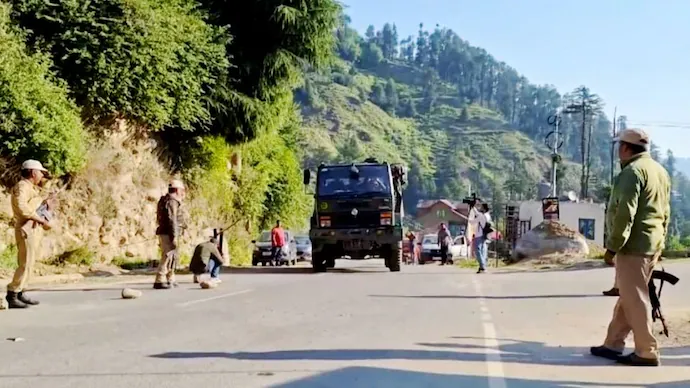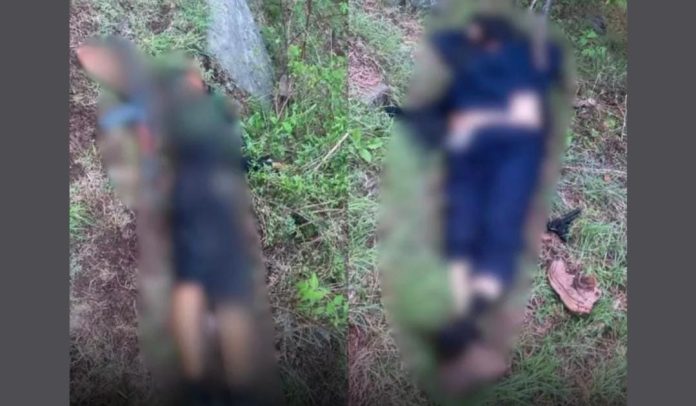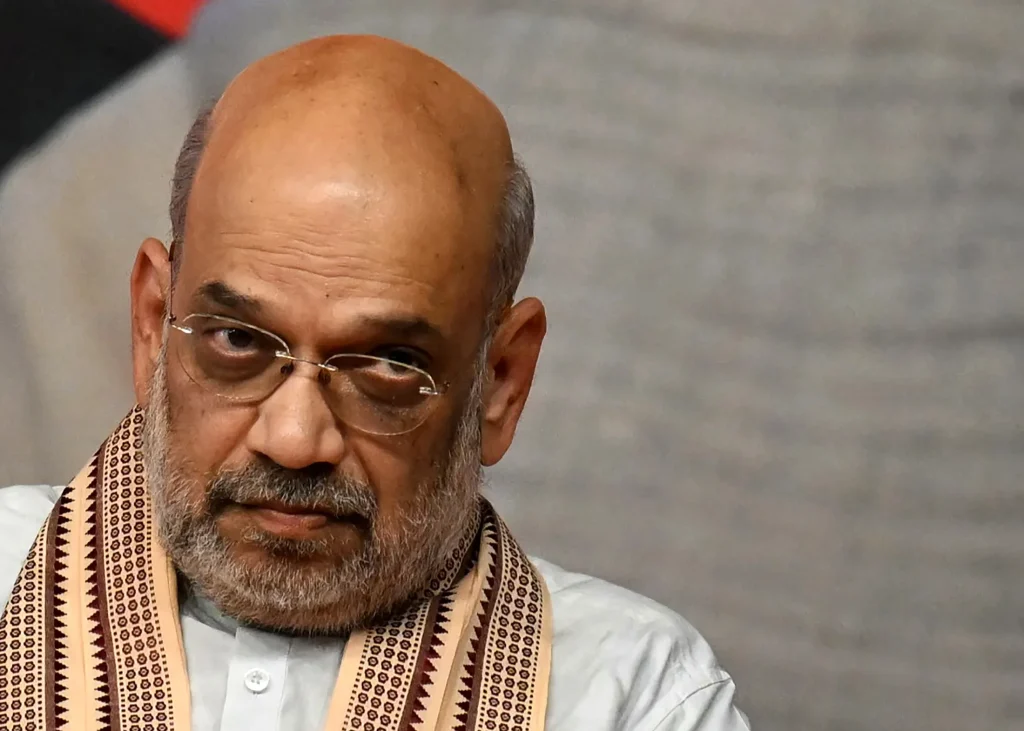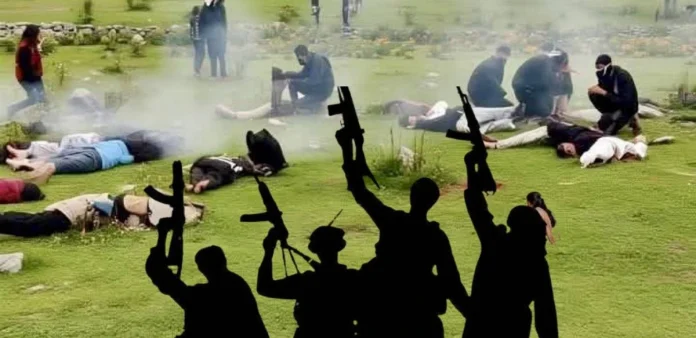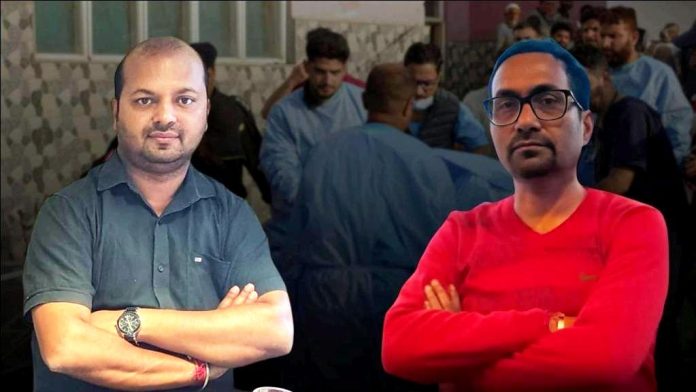Victims singled out based on Religion, Intelligence failure led to Pahalgam Terror Attack: Asaduddin Owaisi
All India Majlis-e-Ittehadul Muslimeen (AIMIM) leader Asaduddin Owaisi has expressed concern over the fact that the terrorists behind the Pahalgam attack singled out victims based on their religion before killing them. He also blamed the central government saying its intelligence failure could not prevent the attack.
“Mazhab pooch ke waha pe masoom logon ka katl kiya gaya hai, (Innocent people were asked about the religion they follow before being killed)” Owaisi told the media on Wednesday.
While condemning the incident, Owaisi also blamed the Modi government, calling the terror attack which claimed at least 28 lives, a direct result of “intelligence failure.” He demanded accountability from the Centre and questioned the effectiveness of the government’s security policies. The AIMIM leader called his this attack more painful than Uri and Pulwama.
“This attack is even more painful, more dangerous, and more shameful than Uri and Pulwama. The terrorists deliberately targeted civilians after confirming their religion. This is nothing less than a massacre,” Owaisi said.
Pahalgam horror: Tourists told to recite Islamic verse, shot soon after
In a horrifying terror attack that shook Kashmir’s picturesque Baisaran meadow in Pahalgam, Pakistan-based terrorists opened fire on a group of tourists on Tuesday, killing at least 28 people and injuring several others. However, what is even more disturbing is that tourists were singled out on the basis of their religion and shot at when they failed to perform a task assigned by the terrorists.
Asavari Jagdale, a 26-year-old Human Resource professional from Pune, recounted the horrific experience of her family during the Pahalgam terror attack in Jammu and Kashmir. Her father, Santosh Jagdale, 54, was asked to recite an Islamic verse by terrorists, and when he failed, they shot him thrice in the head, behind the ear, and back.
Married for just two months, Kanpur resident Shubham Dwivedi, 28, and his wife were travelling in Pahalgam along with other family members, when the former was targeted by the terrorists.
According to eyewitnesses, the terrorists asked if the couple were Muslim and told them to recite the Kalma, an Islamic declaration of faith. When they failed to do so, the gunmen shot Shubham in his head.
Speaking to the media, Shubham’s cousin said, “Bhaiya and bhabhi were eating Maggi, when two people in uniform came to them, and asked are you Muslim, if yes, then recite the Kalma.”
LeT-linked organisation The Resistance Front claims responsibility
The Resistance Front (TRF), a proxy of the banned Pakistan-based terror group Lashkar-e-Taiba (LeT), claimed responsibility for the attack. The organisation is backed by Pakistan’s intelligence agency ISI. The Resistance Front is allegedly linked to the banned Lashkar-e-Taiba (LeT). The outfit is considered a proxy of LeT founder and 26/11 mastermind Hafiz Saeed.
“They will not be spared”: PM Modi vows justice will be served
“I strongly condemn the terror attack in Pahalgam, Jammu and Kashmir. Condolences to those who have lost their loved ones. I pray that the injured recover at the earliest. All possible assistance is being provided to those affected,” PM Modi stated in an X post condemning the heinous attack.
“Those behind this heinous act will be brought to justice…they will not be spared! Their evil agenda will never succeed. Our resolve to fight terrorism is unshakable and it will get even stronger,” the prime minister further said.
PM Modi held a meeting with National Security Advisor Ajit Doval as soon as he landed in Delhi on Wednesday. PM Modi skipped the official dinner hosted by Saudi Arabia and decided to cut short his visit. He was originally scheduled to return on Wednesday night.
Pahalgam Terror Attack: Tourists told to recite Islamic verse, shot soon after
In a horrifying terror attack that shook Kashmir’s picturesque Baisaran meadow in Pahalgam, Pakistan-based terrorists opened fire on a group of tourists on Tuesday, killing at least 28 people and injuring several others. Two officers from Indian Navy and the Intelligence Bureau were also among the deceased.
However, what is even more disturbing is that tourists were singled out on the basis of their religion and shot at when they failed to perform a task assigned by the terrorists.
My father was asked to recite an Islamic verse by terrorists: Pune’s Asavari Jagdale
Asavari Jagdale, a 26-year-old Human Resource professional from Pune, recounted the horrific experience of her family during the Pahalgam terror attack in Jammu and Kashmir. Her father, Santosh Jagdale, 54, was asked to recite an Islamic verse by terrorists, and when he failed, they shot him thrice in the head, behind the ear, and back.
“They then asked my father to recite an Islamic verse (probably the Kalma). When he failed to do so, they pumped three bullets into him, one on the head, one behind the ear and another in the back,” she said.
After Santosh Jagdale collapsed, the gunmen turned to his brother who was lying near him and shot him several times in the back.
Then the terrorists blamed the tourists for supporting Prime Minister Narendra Modi, after which they made some statements to deny that Kashmiri militants kill innocent people, women and children, recalled Asavari.
‘Go tell Modi,’ Pahalgam attacker said after killing my husband: Survivor from Karnataka
Manjunath, a resident of Karnataka’s Shivamogga, was killed in a terror attack while travelling with his family in Jammu and Kashmir’s Pahalgam on Tuesday. The victim had travelled to the valley with his wife Pallavi and their son.
The deceased’s wife Pallavi recounted the horror. “Three of us – me, my husband and our son – had gone to Kashmir. It happened around 1.30 pm, I think. We were at Pahalgam. He died on the spot, in front of my eyes,” she said, adding, “It still feels like a bad dream.”
Pallavi added that local civilians stepped in to help her immediately after the attack. “Three local people rescued me,” she said. According to her, the attackers seemed to be targeting Hindus. “Three to four people attacked us. I told them – kill me too, you’ve already killed my husband. One of them said, ‘I won’t kill you. Go tell this to Modi’.”
Uttar Pradesh resident Shubham Dwivedi told to recite Islamic verse, then shot
Married for just two months, Kanpur resident Shubham Dwivedi, 28, and his wife were travelling in Pahalgam along with other family members, when the former was targeted by the terrorists.
According to eyewitnesses, the terrorists asked if the couple were Muslim and told them to recite the Kalma, an Islamic declaration of faith. Speaking to the media, Shubham’s cousin said, “Bhaiya and bhabhi were eating Maggi, when two people in uniform came to them, and asked are you Muslim, if yes, then recite the Kalma.”
When they failed to do so, the gunmen shot Shubham in his head. “They shot bhaiya in the head, and then pointed the gun at bhabhi and said ‘tell your government what we have done’,” his cousin told the media.
LeT-linked organisation The Resistance Front claims responsibility
The Resistance Front (TRF), a proxy of the banned Pakistan-based terror group Lashkar-e-Taiba (LeT), claimed responsibility for the attack. The organisation is backed by Pakistan’s intelligence agency ISI. The Resistance Front is allegedly linked to the banned Lashkar-e-Taiba (LeT). The outfit is considered a proxy of LeT founder and 26/11 mastermind Hafiz Saeed.
Terrorists Filmed Pahalgam Massacre Using Helmet Cameras, Reveals Probe
The horrifying attack on tourists in Pahalgam’s Baisaran meadows was not only ruthlessly executed but also chillingly recorded. Investigators have confirmed that the terrorists responsible for the massacre wore helmet-mounted cameras, capturing the entire act as it unfolded, a tactic believed to be used for future propaganda or psychological warfare.
Officials said this disturbing detail emerged as part of a broader investigation into the carefully coordinated assault that killed 26 people, many of them tourists. The remote, scenic location known for its peaceful surroundings turned into a site of terror on Tuesday, as the attackers struck without warning.
According to reports involved in the investigation, the group of militants believed to number between four and six had prepared extensively in advance. They had scoped the area in previous days and identified weak security points. Their choice of Baisaran, an isolated meadow about 6.5 km from the main town of Pahalgam, ensured that rescue efforts would be delayed due to the lack of vehicle access.
Officials Link Attack to Lashkar-e-Taiba
Security officials have linked the attack to Pakistan-based Lashkar-e-Taiba (LeT), although the claim of responsibility came from The Resistance Front (TRF), widely believed to be a proxy outfit. Of the four main assailants, two were identified as local militants Aadil Thakur from Bijbehara and Aasif Sheikh from Tral while the remaining two are suspected to be Pakistani nationals of Pashtun ethnicity.
In what appears to be a calculated targetting, the attackers asked tourists for their names before opening fire. The militants separated men from women, reportedly identifying Hindu men and executing them at close range using AK-47 rifles loaded with armor-piercing steel bullets. Two victims reportedly attempted to conceal their religious identity but were still identified and killed. The entire attack is said to have lasted around 15 minutes.
While some attackers shot from close range, others were possibly stationed on elevated terrain, providing cover or acting as lookouts. Authorities are not ruling out the presence of additional militants in the area.
Terrorists Use Body Cams in Rare Tactic Shift
Disturbingly, the use of body cameras in this operation suggests a shift in terrorist tactics, with visuals potentially being used to amplify fear or train recruits. It’s one of the first instances in the Kashmir Valley where attackers have documented their actions in real time using wearable technology.
Post-attack investigations led by the National Investigation Agency (NIA) have included forensic pieces of bullet shells and soil at the scene. Local police have also detained several individuals from nearby areas, and telecom companies have been asked to share data related to active mobile connections during the time of the attack.
Despite prior generic alerts from intelligence agencies, there was no specific warning of a strike targetting civilians in tourist zones. Officials acknowledged that the lack of visible security presence in Baisaran was part of an effort to maintain a tourist-friendly image. Unfortunately, that left a significant gap which the attackers exploited.
The attack also resulted in the death of a staff member from the Intelligence Bureau who was visiting with family. However, security sources have dismissed any theory that intelligence personnel were the primary targets. Victims’ bodies have been shifted to Srinagar, where a wreath-laying ceremony is scheduled today.
पहलगाम में जान गंवाने वालों में शामिल थे ठाणे के तीन लोग, मौत से सदमे में हैं परिजन
Terror Attack in Jammu and Kashmir Pahalgam: जम्मू-कश्मीर के पहलगाम में मंगलवार को हुए आतंकी हमले में महाराष्ट्र के ठाणे जिले के तीन लोगों की मौत से उनके दोस्त और परिचित गहरे सदमे में हैं और वे अपने दर्द को शब्दों में बयां नहीं कर पा रहे हैं। इस आतंकवादी हमले में कई अन्य लोग घायल भी हुए हैं।
मारे गए 26 लोगों में शामिल थे तीनों
मृतकों की पहचान हेमंत जोशी, 44 साल के संजय लेले और 52 साल के अतुल मोने के रूप में हुई है। तीनों ठाणे के डोंबिवली शहर के विभिन्न इलाकों से थे और पहलगाम के प्रमुख पर्यटन स्थल पर हुए इस आतंकी हमले में मारे गए 26 लोगों में शामिल थे। जैसे ही इस भीषण हमले की खबर सामने आई, डोंबिवली में शोक की लहर दौड़ गई। स्थानीय लोगों, कई सामाजिक संगठनों और राजनीतिक दलो के नेताओं ने इस घटना पर शोक व्यक्त किया।
लेले ठाणे शहर की एक निजी कंपनी में अकाउंट विभाग में थे। वह डोंबिवली (पश्चिम) के महात्मा फुले रोड स्थित पांडुरंग वाड़ी इलाके में अपने जॉइंट फॅमिली के साथ रहते थे। इस हमले में उनके बेटे के हाथ में गोली लगने की खबर है। स्थानीय निवासी लक्ष्मीकांत भोइर ने बताया कि ‘इस हादसे की खबर से हम सभी स्तब्ध हैं। लेले का परिवार और हम सभी उनके असमय निधन से पूरी तरह टूट चुके हैं।’
अतुल मोने के साथ पहलगाम गए थे घूमने
लेले और जोशी, मोने के साथ एक समूह यात्रा के तहत पहलगाम गए थे। मोने, डोंबिवली (पश्चिम) के ठाकुरवाड़ी क्षेत्र के निवासी थे और मुंबई में इंजीनियर के रूप में कार्यरत थे। वह अपने परिवार के साथ इस यात्रा पर गए थे। प्रशासन ने मृतकों के परिवारों को त्वरित और समुचित सहायता उपलब्ध कराने के निर्देश दिए हैं। कलेक्टर कार्यालय और स्थानीय आपदा प्रबंधन प्राधिकरण ने लोगों से अनुरोध किया है कि यदि उनके कोई परिचित या रिश्तेदार पहलगाम में हैं, तो वे तत्काल ज़िला प्रशासन से संपर्क करें।
ठाणे में शुरू की गयी हेल्प डेस्क
ठाणे कलेक्टर कार्यालय में 24 घंटे चालू रहने वाली एक हेल्प डेस्क और आपात नियंत्रण कक्ष भी स्थापित किया गया है, जिससे कश्मीर में फंसे पर्यटकों को सहायता मिल सके। स्थानीय भारतीय जनता पार्टी (बीजेपी) और शिवसेना नेताओं ने शोक संतप्त परिवारों से संपर्क किया है और उन्हें हरसंभव सहायता प्रदान करने का भरोसा दिलाया है।
Pahalgam Terror Attack: Sketches of Three Terrorists Revealed
Asif Fauji, Suleman Shah and Abu Talha – sketches of these three terrorists wanted for the deadly attack on tourists in Pahalgam were released on Wednesday. The three terrorists who were also involved in earlier attacks in Poonch also had code names — Moosa, Yunus and Asif revealed Jammu & Kashmir Police.
The police said the sketches were made based on eyewitness accounts of tourists who survived the attack. A group called The Resistance Front (TRF), which is connected to the banned Pakistani group Lashkar-e-Taiba, claimed it carried out the attack. The Asif Fauji, Suleman Shah and Abu Talha allegedly work for TRF.
Pahalgam terror attack: 26 civilians dead
In a horrifying terror attack that shook Kashmir’s in Pahalgam, Pakistan-based terrorists opened fire on a group of tourists on Tuesday, killing 26 people and injuring several others. Two officers from Indian Navy and the Intelligence Bureau were also among the victims.
The deadly attack was launched at the picturesque Baisaran meadow in Pahalgam, which is a popular tourist spot in Jammu and Kashmir’s Pahalgam, popularly called ‘mini Switzerland’.
Intel sources had warned about the attack
A few days before the deadly terror attack in Pahalgam, intelligence agencies had reportedly warned about a possible strike targeting non-local tourists. The alert also warned about the potential use of an improvised explosive device (IED).
Indian Army guns down two terrorists
Meanwhile, hours after the devastating terror attack in Pahalgam that claimed 26 innocent lives, the Indian Army thwarted a major infiltration attempt in the Uri sector of North Kashmir. In a fierce gunfight, two heavily armed terrorists were neutralised by security forces.
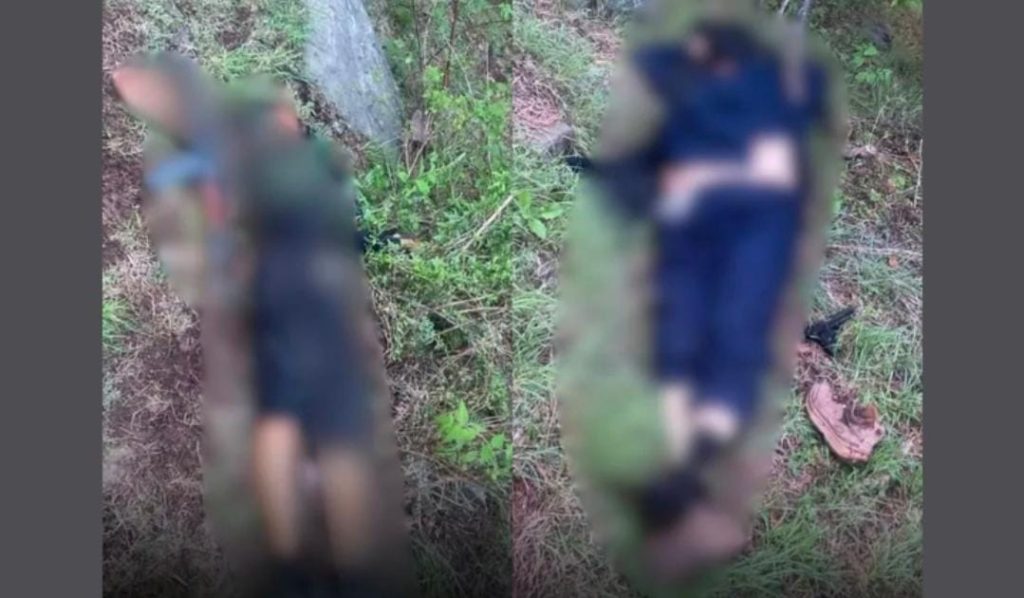
The two terrorists were killed on Wednesday in a heavy exchange of fire with security forces in Jammu and Kashmir’s Baramulla by the Indian Army. The encounter broke out when around two-three terrorists tried to infiltrate through general area of Sarjeevan at Baramulla’s Uri Nala.
The operation, launched by Indian Army’s Chinar Corps, also led to the recovery of a large cache of weapons, ammunition, and other war-like stores. The area is being combed for more infiltrators, and operations remain underway.
LeT-linked organisation The Resistance Front claims responsibility
The Resistance Front (TRF), a proxy of the banned Pakistan-based terror group Lashkar-e-Taiba (LeT), claimed responsibility for the attack. The organisation is backed by Pakistan’s intelligence agency ISI. The Resistance Front is allegedly linked to the banned Lashkar-e-Taiba (LeT). The outfit is considered a proxy of LeT founder and 26/11 mastermind Hafiz Saeed.
TRF a terrorist organization: Govt of India
According to the Ministry of Home Affairs, TRF “has been involved in the planning of killings of security force personnel and innocent civilians of Jammu and Kashmir, co-ordinating and transporting weapons to support proscribed terrorist organisations, recruitment of terrorists, infiltration of terrorists and smuggling of weapons and narcotics from across the border.”
The Government of India formally designated TRF as a terrorist organization under the UAPA in the year 2023. This move allowed for stronger surveillance and crackdowns on its operations and associates.
The National Investigation Agency (NIA) and other central agencies have intensified their efforts to dismantle the group’s operational infrastructure.
All About ‘The Resistance Front’ (TRF) Terror Group Behind Pahalgam Terror Attack
In one of the deadliest civilian attacks in recent years in Jammu & Kashmir following the 2019 Pulwama attack. At least 28 tourists were killed and several others injured in a terrorist strike in Pahalgam.
One of the worst attacks on civilians in Kashmir since the abrogation of Article 370. The incident took place at the Pahalgam’s Baisaran meadows in Anantnag district on Tuesday. An Indian Navy officer and an Intelligence Bureau personnel were also killed in the attack.
The Resistance Front’s statement
According to reports, The Resistance Front (TRF), a terror outfit, has claimed responsibility for the massacre in Pahalgam. The organisation is backed by Pakistan’s intelligence agency ISI. The Resistance Front is allegedly linked to the banned Lashkar-e-Taiba (LeT). The outfit is considered a proxy of LeT founder and 26/11 mastermind Hafiz Saeed.
“More than 85,000 domiciles have been issued to non-locals, creating a pathway for demographic change in Indian-occupied Jammu & Kashmir (IIOJK). These non-locals arrive posing as tourists, obtain domiciles, and then begin to act as if they own the land. Consequently, violence will be directed toward those attempting to settle illegally,” TRF said.
What Is The Resistance Front (TRF)?
The Resistance Front (TRF) was allegedly formed in October 2019. The formation of TRF came shortly after the Indian government’s abrogation of Article 370 and the revocation of Jammu and Kashmir’s special status in August 2019.
The organisation is widely regarded as a proxy or rebranded offshoot of Lashkar-e-Taiba (LeT). Lashkar-e-Taiba is the Pakistan-based jihadist group responsible for the 2008 Mumbai terror attacks. The Indian security agencies and intelligence sources confirm TRF was created to give Kashmir militancy a more “indigenous” and “secular” face. The organisation deliberately distanced itself from the overtly Islamist branding of groups like LeT and Jaish-e-Mohammad.
Leadership and Key Figures
Individuals with known associations with Lashkar-e-Taiba (LeT) lead the TRF. This includes Sajjad Gul, Salim Rehmani, and Sajid Jatt. Sheikh Sajjad Gul, a key commander, has been designated a terrorist under India’s Unlawful Activities (Prevention) Act (UAPA) list. Not just that he is also on the National Investigation Agency’s (NIA) most-wanted list, with a bounty on his head.
TRF’s Tactics and Activities
Terrorism, Infiltration & Narcotics Smuggling
TRF has been actively involved in a range of terrorist activities, including:
-
Targeted killings of civilians, including religious groups like Kashmiri Pandits and Sikhs.
-
Attacks on Indian security forces and local police.
-
Recruiting youth through online radicalization.
-
Smuggling of narcotics and weapons from across the Pakistan border.
-
Coordinating logistics and transportation for other banned terror outfits.
According to the Indian security agencies, the group uses guerilla warfare strategies. The organisation has been tied to deadly ambushes like the one in Kupwara’s Keran Sector in April 2020. In this incident over five Indian soldiers and five TRF terrorists were killed in a prolonged gun battle.
Why TRF Was Created: A Strategic Rebranding
According to counter-terrorism experts, the creation of TRF served multiple strategic purposes:
-
By distancing itself from religious nomenclature, TRF helps Pakistan avoid censure from international watchdogs like the Financial Action Task Force (FATF).
-
The term, “Resistance” is a globally resonant term. It is often associated with indigenous freedom struggles, which Pakistan uses to project the Kashmir insurgency as a local movement, even though its support is largely foreign-backed.
-
TRF uses secular symbols and language; its activities and affiliations make it clear that it is an Islamist militant organization. It targets not only state institutions but also religious and ethnic minority groups.
-
An official, as per an Indian Express report said, “Lashkar and Jaish-e-Mohammad had religious connotations and Pakistan did not want that. They wanted to make Kashmir militancy appear indigenous. Hence, they opted for ‘Resistance’ – that has some currency in global politics – in its name”

